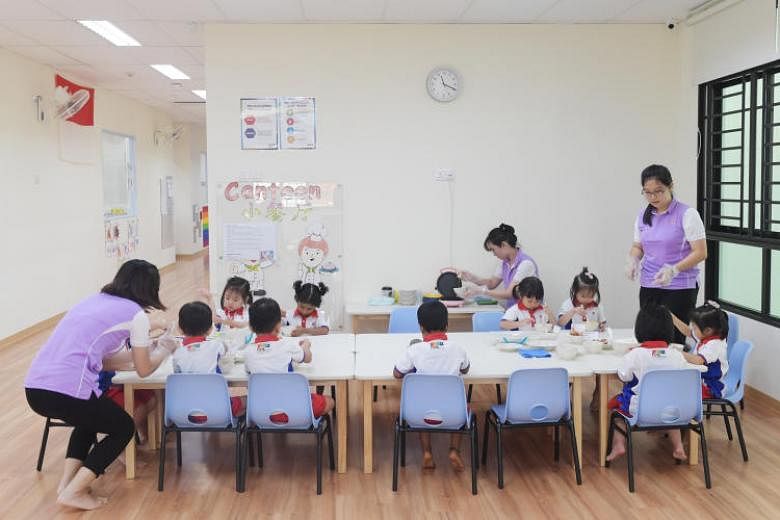The term "baby Pisa" sounds adorable and the idea of gunning for another No. 1 spot might be enticing for Singapore (Singapore should aim to be No. 1 in pre-school education, Aug 22).
However, while I am a strong proponent of early childhood education, I am hesitant about ranking pre-schools because those qualities most valuable in pre-school education do not necessarily translate into concrete measurable terms.
The most important objective in pre-school education is to imbue the joy of learning in children at an age when they are most inquisitive. As it stands, too many local pre-schools are already placing too strong an academic focus on teaching the alphabet and even reading, writing and arithmetic.
One of the skills most critical at this age is communication skills, that is, the ability to articulate with proper enunciation and to learn to express one's emotions, intentions and thoughts.
Young children sometimes act out in frustration not because they are at their "terrible twos" but because they are unable to express their needs and wants effectively, resulting in being frustratingly misunderstood or dismissed.
Communication skills also encompass skills of negotiation and the ability to compromise. Too often, adults rush in too quickly when children are in conflict without giving them an opportunity to develop their own conflict resolution skills.
Social skills are also vital for development during these early years and comprise the ability to make friends, interact with peers and adults, plan and sequence.
Incorporated into these should be skills of self-regulation, which is the ability to engage in a task with sustained effort till the undertaking is completed, and the ability to control one's behaviour or emotions as called for under the circumstances at hand.
While I understand process (health and safety routine, curriculum, and so on) and structural factors (teacher-child ratio, class size, teacher's qualifications) can be measured, I am not sure if any of the aforementioned skills are quantifiable although they are certainly qualities deserving of cultivation in the formative years.
Putting pre-schools in the ranking pit may inadvertently result in them adopting unnecessarily rigorous and rigid curricula.
Just let little kids be kids, let them play a lot, and enjoy their first taste of school in a way that will ignite their love for lifelong learning.
Lily Ong

